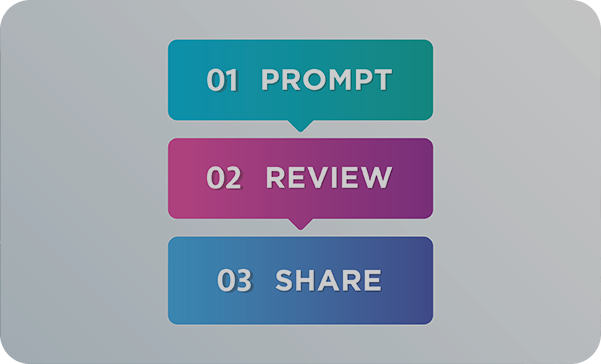
Artificial intelligence is changing the way we work and learn, offering incredible new possibilities for everyone in a school community. From creating lesson plans and drafting school-wide communications to personalising student learning experiences, AI is a tool that can save time, inspire creativity, and boost productivity. But with great power comes great responsibility.
The rapid pace of AI development means that the most effective school-wide policies won’t focus on specific tools, but on a clear, human-centred process.
The key to using AI safely and effectively for teachers, students, and staff isn’t about which tool you use, but how you use it. We’ve found that the best approach can be broken down into three crucial steps.
1. Human Prompt
The process always begins with a person with a clear idea or task. This initial prompt is vital; it’s where we define the goal, the context, and the ethical guardrails for the AI. A well-crafted prompt ensures a useful output, while a vague one can lead to a messy, unhelpful result.
The AI tool will then generate content based on the human prompt. This output is the foundation, not the final product. It’s a starting point for further work and thought, a rough draft that needs your professional expertise and human judgment.
2. Human Review & Edit
This is the most critical step and one that should never be skipped. An individual must critically review the AI-generated results for accuracy, bias, relevance, and tone. This is where the magic happens—where raw output is refined, corrected, and shaped into something genuinely valuable and appropriate for its audience. You can’t simply accept the AI’s answer without a thorough check.
3. Share
Only after the critical review and editing process is complete should the content ever be shared with a final audience, whether that’s a student, a class, a parent, or the wider community.
Download Poster
Skipping the review and edit step can have disastrous consequences. An AI is a tool, not an expert, and it can be prone to errors, misinformation, and unpredictable behaviour.
The landscape of AI tools is changing by the day. A school policy that bans specific apps or endorses a single platform will be outdated before the ink is dry. Instead, schools should consider broad policies and design and define their use of generative AI through specific and adaptable procedures. This would allow schools to react and respond when tools change or new ones doing new, unimagined things, arrive.
By prioritising the human-led process of prompt, review, and share, a school can establish a foundation that is resilient to technological change. This approach empowers students and teachers to be critical thinkers and responsible creators. It teaches them that AI is a powerful assistant, not a replacement for human intelligence, expertise, and care. The tools may change, but the importance of thoughtful, human-led review will always be key to making the most of them.
Our team can help. Get in touch to chat with an expert about crafting safe, effective school processes that prioritise human intelligence over artificial enhancements.
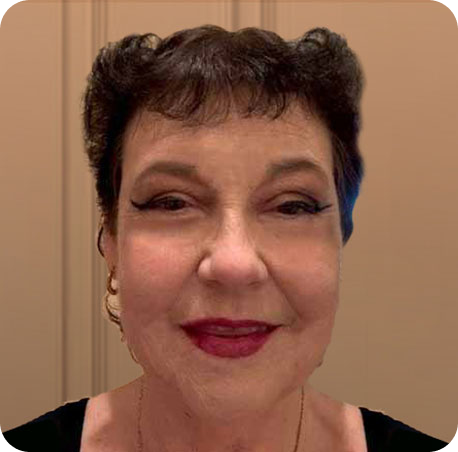
I have been working for TTS for the past 7 years assisting schools with their technology infrastructure and digital alignment with the MoE.
Before that I was completing a Batchelors of Business with a major in Management and a Graduate Diploma in Business Administration, I worked in Massey University tutoring, relief lecturing, and marking in the business college while also being a director of a small software company. I also previously held roles as sales manager in the corporate world.
Within the professional learning environment, I specialise in assisting schools with strategic management, change management and leadership. These are all challenging areas that often require specific planning and implementation. Change is not only synonymous with technology but is part of the daily environment in education and embracing change can be a daunting. My goal is to assist schools to feel comfortable and accepting of necessary change.
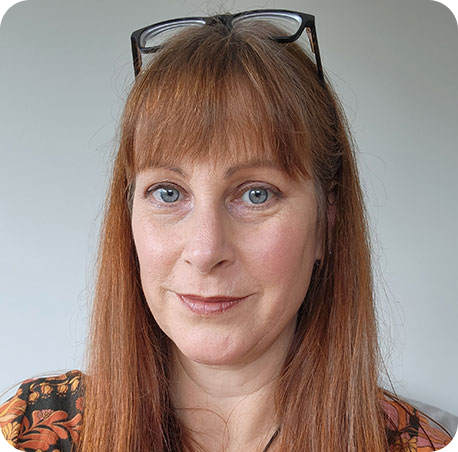
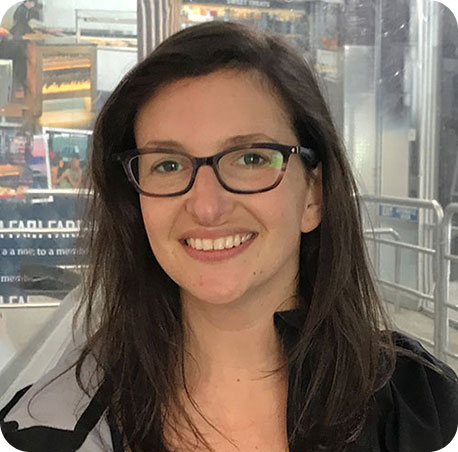
I am a graphic and digital designer with nearly 20 years experience designing for the digital realm. I have a Bachelor of Fine Arts in Visual Communication, a Certificate in Computer Engineering and am a certified Adobe Creative Educator.
I am passionate about using technology to bring ideas to life and love encouraging learners to look for new ways to answer old questions. As a life-long learner myself, I always enjoy trying out new creative tools and exploring the impact they can have on students’ learning outcomes.
I am excited to be part of the TTS team and continue to help schools make the most of their websites and support teachers and students in creating engaging graphics, presentations, videos, websites, and more.
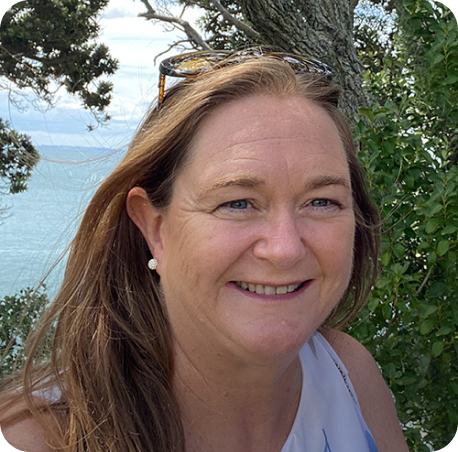
I’m a teacher with 20 years of classroom experience in a range of schools, locations, deciles and age groupings. I have background in technology education with a specialisation in Food and Material Technology.
I am passionate about technology education. So much so that it lead me to complete a Masters and PhD in Education qualifications where I explored communities of practice, teacher pedagogy and defined technological food literacy. I believe that many hands make light work, and networking and collaboration are key tools in the teacher kete.
I am currently part of the Subject Expert Group working with the Ministry of Education on the Review of Achievement Standards project.
I am a primary trained teacher with over 20 years’ experience finding new ways to effectively implement digital technologies into the classroom. I have always been passionate about finding and utilising digital tools within my class, and I enjoy exploring the internet to find new tools and learn about new ways in which other educators use digital technologies to best support their students.
I believe that is it important to find the right tools for you and your students as every class and school is different. Digital tools and technologies change rapidly and what may not have been suitable in the past could be just what you need now. I look forward to working with and supporting you to find and implement the best digital technologies for your specific learning environment.
I am a specialist teacher and PLD provider of creative writing, drawing on 20 years’ hands-on experience in the primary classroom teaching years 0-6, and as literacy leader, ALL teacher and CoL teacher.
In addition to my classroom experience, I bring my own experiences as a creative writer to my PLD sessions. I have published over 100-chapter books and 9 novels. Much of my published content is for the education market in NZ, Australia, the U.S, U.K and China. Publishers include Macmillan, Pearson, Oxford University Press, Capstone, Lift education, Sunshine books and Cengage. In addition, I have written several assessment and comprehension guides as well as books on how to teach creative writing (Essential resources). I hold a Doctorate in Education (EdD), where I investigated how primary school teachers teach creative writing, often focusing on the use of digital technology. As well as education and teaching qualifications, I also hold a Masters in Creative Writing.
I can provide individual hands-on modelling and feedback, as well as whole staff PLD. In addition, I examine the potential of new media (technology) in creative writing pedagogy.
I am a primary teacher of 30+ years experience covering all year levels from 1-8. I believe in “lifelong learning” and am passionate about encouraging teachers to be facilitators of their learning, and that of their students. I believe knowing when, what, why and how to implement digital tools to fit the purpose of “the teaching and learning” is essential today. I believe relationships are intrinsic in education, connecting people with tools/resources for teaching and learning, and how they support creativity, collaboration and innovation.
Michael is a teacher with 8 years classroom experience, and has taught students from years 1 through to 8. He has a bachelor of teaching and continues to learn through post-graduate studies. Michael is passionate about literacy education, and how reading and writing can – and should – be made accessible and interesting for all learners in schools. As a teacher, he recognises the need for resources that engage, enable, and empower students so they can achieve a meaningful, successful, and sustainable education.
I am an MoE Accredited PLD facilitator with a BEd (Hons) Degree in Education. I have over 20 years of experience in teaching 11 to 18-year-olds, with the last fourteen years being in New Zealand. I believe in empowering teachers to be confident in a modern learning environment and to discover new ways of inspiring students. I am a firm believer of continuous improvement in the skills of a teacher to deliver a more interactive, productive and engaging experience. I am extremely skilled with Google Suite/Apps and Microsoft.